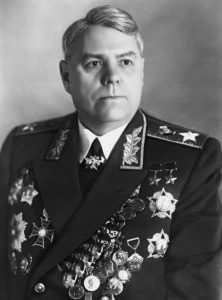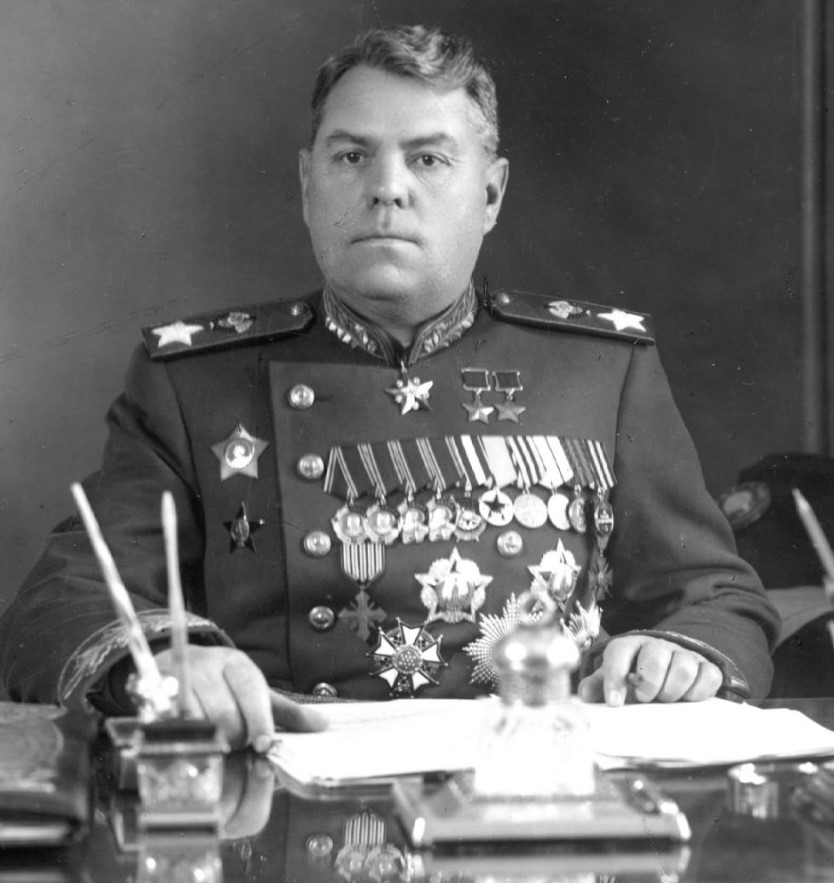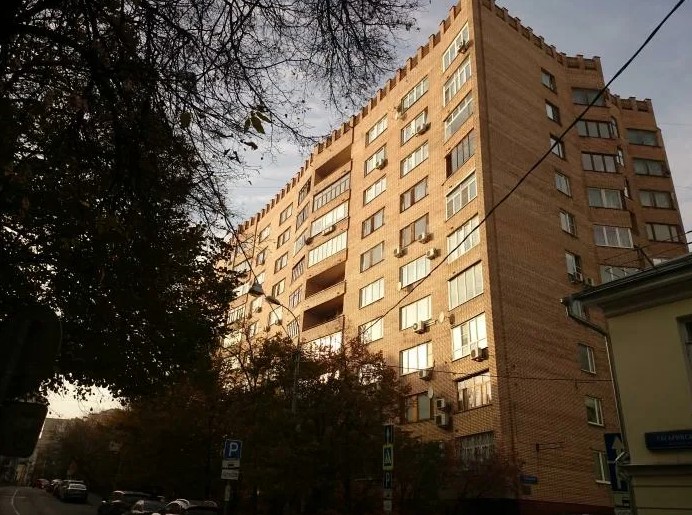Alexander Mikhailovich
Vasilevsky
1895-1977

Alexander Mikhailovich Vasilevsky – Soviet military commander, Marshal of the Soviet Union (1943), Chief of the General Staff, member of the Stavka of the Supreme High Command, Commander-in-Chief of the Main Command of Soviet Forces in the Far East, Minister of the Armed Forces of the USSR, and Minister of War of the USSR. Was born on September 30, 1895, in the village of Novaya Golchikha, Kostroma Province. After graduating from the Kostroma Theological Seminary in 1914, he enrolled in an accelerated course at the Alekseyevsky Military School, which he completed in 1915. He participated in the First World War, reaching the rank of Staff Captain. He joined the Red Army in 1919 and took part in the Civil War as an assistant regiment commander. In 1937, he graduated with honors from the Military Academy of the General Staff. From May 1940, he served as First Deputy Chief of the Operations Directorate of the General Staff. In the spring of 1940, he headed the government commission for the demarcation of the Soviet-Finnish border. During the Great Patriotic War, from August 1, 1941, he was Deputy Chief of the General Staff and Head of the Operations Directorate. From June 26, 1942, he led the General Staff, and from October 1942, he simultaneously held the post of Deputy People’s Commissar of Defense of the USSR. He participated in the planning and execution of all major operations, including the counteroffensive at Stalingrad, the Battle of Kursk, and the operations to liberate Donbass, Crimea, and Belarus. In February 1945, he was appointed commander of the 3rd Belorussian Front and led the assault on Königsberg in April 1945. From July 30, 1945, he served as Commander-in-Chief of Soviet forces in the Far East, directing the operation to defeat the Kwantung Army in August-September 1945. After the war, he held a number of key positions: Chief of the General Staff (1946-1948), First Deputy Minister of the Armed Forces of the USSR (1948-1949), Minister of the Armed Forces of the USSR (1949-1950), and Minister of War of the USSR (1950-1953). From 1953 to 1956, he was First Deputy Minister of Defense of the USSR. He retired due to health reasons in December 1957. He was awarded two Orders of “Victory,” eight Orders of Lenin, the Order of the October Revolution, two Orders of the Red Banner, the Order of Suvorov 1st Class, and other state honors.
Address: Moscow, Gagarinsky lane, 6

